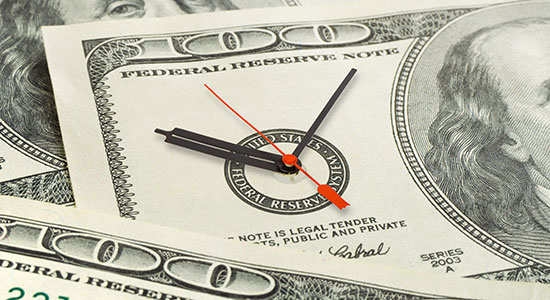Out There
Boys vs. Girls: “Scouting” At Issue

The Girls Scouts of the U.S.A. has filed a federal trademark infringement lawsuit against the Boy Scouts of America, which dropped “Boy” from its name, aligning with a new policy to admit girls to core programs. The Boy Scouts of America changed its name to Scouts BSA.
In a lawsuit filed last month, the Girl Scouts argue the Boy Scouts can’t use terms like “Scouts” or “Scouting” without the gender distinction because they would be confusingly similar to Girl Scout trademarks, which are used to advertise and promote competing services.
The lawsuit contains five other causes of action, including unfair competition and trademark dilution.
“Since BSA’s announcement that it would admit girls to its core programs, GSUSA’s fears about the damage that would be caused to its trademarks and the mission those trademarks symbolize have been realized,” the complaint states.
Source: New York Times; Reuters
Got a Nugget to Share?
Send your ideas for interesting facts, trends, tips, or other bits and bytes to wislawmag@wisbar.org, or comment below.
By the Numbers
84%

– The percentage of respondents who said increasing firm revenue is important to law firm success, according to Clio’s 2018 Legal Trends Report, which collected data from nearly 70,000 legal professionals and surveyed nearly 2,000 of them.
Yet only 34 percent said growing the client base is important, and only 23 percent said billing more hours is important, which are important revenue drivers.
“The fact that these critical inputs are consistently overlooked suggests that many law firms aren’t focused on two of the most impactful drivers for achieving their core business goals.”
Like the 2017 report, Clio’s data suggests that lawyers are only paid for 2.4 hours per day, based on the number of billable hours worked, the number of billable hours invoiced, and the number of hours actually collected.
Quotable
“Our goal … is to modernize key aspects of the nation's civil legal system and make it more accessible to the public.”

– Susan K. Urahn, executive vice president and chief program officer for the Pew Charitable Trusts, announcing an initiative to modernize the civil legal system.
Urahn said increased funding for legal aid and increased pro bono efforts, while necessary, “will never be enough to meet the need, and adding more lawyers does not itself modernize the antiquated civil legal system.”
In Governing magazine last month, Urahn said state and local governments “should invest in new tools that use the power of technology to free lawyers to work on more complex cases.
“Indeed, state and county governments are experimenting with legal information portals, which change the way people access the justice system, and other technologies that move targeted court processes online.”
The initiative is in partnership with technology companies, state court officials, and organizations including the National Center for State Courts, the Legal Services Corporation, and the American Bar Association.
Tech Tip
You Can Now Legally Fix Your Own Consumer Devices

The Digital Millennium Copyright Act (DMCA), adopted in 1998, prohibited the “circumvention of technological measures employed by or on behalf of copyright owners to protect access to their works.”
In other words, the DMCA prohibited consumers or third parties from fixing their own consumer devices. Only the manufacturers could do so, as the copyright owners of the technology inside.
However, in October, the U.S. Copyright Office and the Library of Congress adopted exemptions that allow consumers and third parties to fix devices and may ultimately reduce consumer waste caused by throwing out broken devices.
“For years, manufacturers have been fighting to keep software and hardware protected under copyright law, making it hard – if not illegal – for consumers or third parties to fix devices,” according to the ABA Journal.
“This has fueled a quick turnover of consumer electronics, causing, among other challenges, environmental harms.”
Source: Christopher C. Shattuck, Practice Management Advisor (Practice 411™), State Bar of Wisconsin
Good Ideas
Fastcase Acquires Legal News Platform, Law Street Media
Fastcase, an online legal research tool that is free to State Bar of Wisconsin members, has acquired a legal news platform called Law Street Media.
Under Fastcase, Law Street Media will relaunch in 2019 and highlight national and state litigation and regulatory developments and offer analytics and insights through the company’s legal information suite.
“Legal research isn’t just about logging into an online service and running searches,” said Fastcase CEO Ed Walters.
“It’s also about taking an active interest in developments that clients care about. Legal news means covering the stories behind new cases filed, analytics, new judicial opinions, passed bills, and rulemaking.
“Lawyers have to stay as informed as their clients, and our partnership with Law Street Media will be an important source of must-have information about the fast-changing practice of law.”
Source: Fastcase blog
On the Radar
Election Highs

After last month’s midterm election cycle, the recreational use of marijuana is now legal in 10 states and the District of Columbia. Voters in Michigan approved a ballot measure to legalize pot for recreational uses, although a ballot measure for recreational use in North Dakota failed.
In 32 states – including Minnesota, Illinois, Missouri, North Dakota, and Ohio – pot is now legal for medical purposes.
Wisconsin is among a minority of states with zero tolerance for marijuana uses, but that may change. Advisory referendums in six Wisconsin counties revealed overwhelming support for recreational marijuana use with tax on sales, according to the Milwaukee Journal Sentinel. Eleven other counties and the city of Waukesha showed majority support for medical marijuana.
According to a 2018 Forbes article, Michigan has earned $600 million in tax revenue on marijuana sales since 2008, when the state legalized marijuana for medical purposes only.
Colorado, which became one of the first states to legalize pot for recreational purposes in 2012, has generated $1.56 billion in tax revenue from cannabis sales. California, another trailblazer, has raked in $2.75 billion.
